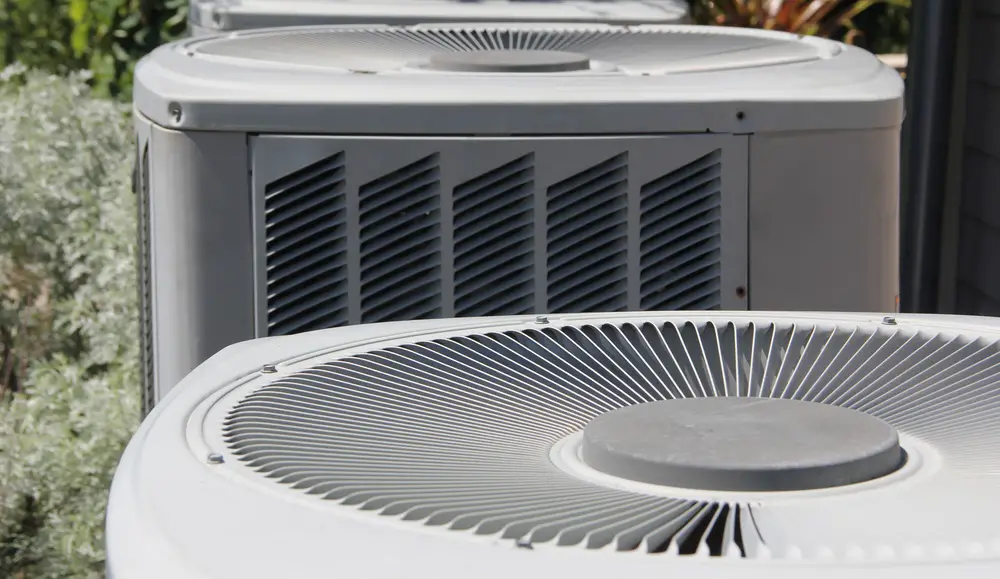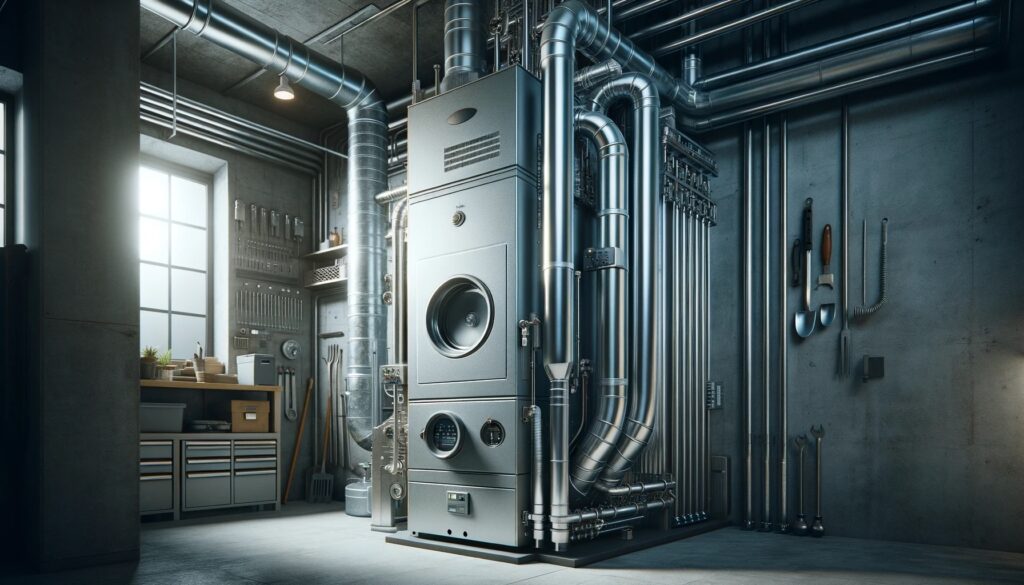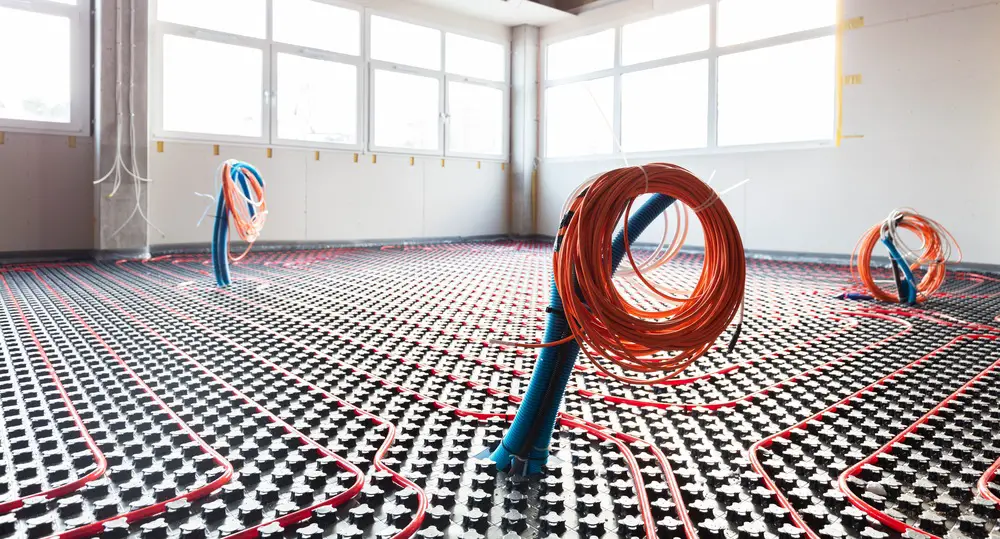Upgrading your HVAC system is a significant decision for any homeowner. Not only is it a considerable investment, but it also affects the comfort and energy efficiency of your home. However, with different types of HVAC systems available in the market, it can be overwhelming to determine which one is the right fit for your home.
From traditional systems like central air conditioners to newer, more advanced options like cooling split systems and hybrid heat pump system, we will discuss the pros and cons of the top six choices to help you make an informed decision. Whether you’re looking to upgrade your HVAC system for better performance or to lower your energy bills, read on to find the best fit for your home.
Below, we discuss the pros and cons of the top six different types of HVAC systems, which will make your decision much easier for your next upgrade.
1) Central Air Conditioning Systems

Central air conditioning systems are, by far, the most commonly used type of HVAC system in homes. Designed to cool the entire house by distributing cool air through a series of ducts and vents, they can provide consistent cooling and energy efficiency, and because of that, they are a reliable and cost-effective option for many homeowners.
Pros
Consistent & Even Cooling
One of the major advantages of central air conditioners is their ability to provide consistent and even cooling throughout the entire home by using a single unit to cool the air and then distributing it through the ductwork to each room. With central air conditioning, you can say goodbye to hot spots and uneven temperatures in different areas of your home.
Energy Efficiency
Another benefit of central air conditioning systems is their energy efficiency. Newer models are designed to be highly efficient, which can lead to significant savings on your energy bills. By investing in a central air conditioning system, you can enjoy a cool and comfortable home without breaking the bank.
To maintain this efficiency over time, you’ll also need regular upkeep of the evaporator coil and ductwork… which leads us to the cons of Central HVAC.
Cons
Ductwork Install & Maintenance
One drawback of central air conditioning systems is the need for ductwork, so if your home does not already have ducts installed, the installation process can be disruptive and costly. Ducts because of their location, typically in an attic or crawlspace, can lose 25%-40% of the energy put out by your system. Additionally, you’ll want to keep in mind that duct systems require regular maintenance and cleaning to ensure optimal performance. This helps to prevent your system from having to work harder if your ductwork is leaking or not properly insulated.
With regular inspections and maintenance service, a Central Air Conditioning system can be a great option.
2) Ductless Mini-Split Systems

If you’re looking for a versatile and energy-efficient HVAC system, then ductless mini-split systems might be the right choice for you. As the name suggests, these systems don’t require any ductwork to operate. Instead, they use an air handler installed in each room or zone, making them a great option for homes without existing ducts or for those who want to avoid the hassle and cost of installing new ones. The air handler in each space allows for individual temperature control, enhancing both comfort and efficiency.
Pros
Flexibility
One of the biggest advantages of installing ductless mini-split systems is their flexibility. They consist of an outdoor unit that connects to one or more indoor units, allowing you to create multiple zones in your home. Each indoor unit can be controlled independently, meaning you can customize the temperature settings in each room, not only maximizing comfort but also helping to save energy by only cooling or heating the rooms that are in use. The compact size of the indoor units also allows for more flexibility in terms of placement, making it easier to find a suitable spot in each room.
Highly Efficient
Ductless mini-split systems are also highly efficient. No ducts mean no energy loss due to leaky or inefficient ductwork, and because these systems use advanced technology to regulate temperature more efficiently, resulting in lower energy consumption and reduced utility bills.
Cons
Installation Cost
While there are many benefits to a ductless air conditioner, they still have a few drawbacks. Installation cost can be prohibitive. An average single mini-split install in the US is about $4,000. If you need multiple spaces air controlled, the more expensive the installation can be. This type of installation also requires an outdoor compressor, and the farther apart the indoor and outdoor units are, the costlier the installation will be.
Limited Capacity
Due to their compact nature, these units do have a capacity limit. The unit is sized for the singular space it is responsible for heating and cooling. So if you’re looking for an HVAC powerhouse, you may want to take this system off your list.
3) Heat Pumps

If you’re looking for versatile and energy-efficient types of HVAC systems, then heat pumps might be among the perfect choices for your home. Unlike traditional systems that generate hot air by burning fuel, heat pumps work by transferring heat from one area to another. This means that they can provide both heating and cooling functions, making them a year-round solution for your home’s comfort needs.
Pros
Energy Efficiency
One of the major advantages of heat pumps is their energy efficiency. Since they don’t burn fuel to create heat, they can provide the same level of comfort as other systems while using less energy, and lead to significant savings on your energy bills.
Versatility
Heat pumps are also known for their versatility. They can be used in a variety of settings, from single-family homes to larger commercial buildings. They can be installed as a central system, where the same unit provides heating and cooling for the entire house, or as a ductless mini-split system, where each room has its own indoor unit, allowing for precise temperature control and can help eliminate hot or cold spots in your home.
Durability
One of the best benefits, however, is the durability of this system. With proper maintenance, they can last for many years, providing reliable comfort for your home.
Cons
Cost
Heat pumps are complex systems, and because of that, they may cost more to purchase and install than other systems.
Cold Weather Challenges
They also can have a few challenges when it comes to cold weather, including reduced efficiency, the need to run a defrost mode in sub-freezing temperatures, and the tendency to create drafts from supply registers inside your home. During the winter, the air coming out of the vents for heating is often lower than your body temperature. This can create the feeling of a draft.
4) Furnaces

When it comes to heating your home, furnaces have long been a popular choice among different types of HVAC systems for homeowners. While these systems use a fuel source, such as natural gas or oil, to generate heat and distribute it throughout your home, they also offer a reliable and efficient way to keep your home warm during the colder months.
Pros
Consistent Heat
One of the main advantages of furnaces is their ability to provide consistent and powerful heat. They can quickly raise the temperature in your home, making them ideal for colder climates or larger homes. Furnaces are also known for their long lifespan when properly maintained.
Energy Efficient
Another benefit of furnaces is their energy efficiency. Many newer models are designed to be highly efficient, which can lead to significant savings on your energy bills. By upgrading to a high-efficiency furnace, you can enjoy a warm and cozy home without breaking the bank.
Cons
Still, there are drawbacks to consider with furnaces.
Required Maintenance
First, they require regular maintenance and inspections to ensure safe and optimal performance. This means you’ll need to clean or replace air filters, check for any gas leaks, schedule annual tune-ups with HVAC professionals, and perform testing to ensure there are no Carbon Monoxide leaks. When dealing with a gas furnace, this is NOT OPTIONAL. Failing to maintain a gas furnace can be harmful, even deadly, to your family.
Noise
Furnaces can be noisy during operation, which may be a concern for homeowners looking for a quieter heating system.
5) Radiant Heating Systems

Radiant heating systems are an excellent choice for homeowners looking for efficient and comfortable heating. These systems work by using either electric panels or hot water tubes installed underneath the flooring, walls, or ceiling of your home; as the heat radiates upwards, it warms the objects and surfaces in the room, creating a cozy and consistent warmth throughout the space.
Pros
Energy Efficient
One of the major advantages of radiant heating systems is their energy efficiency. Unlike traditional heating systems that rely on forced air or ductwork, radiant systems heat the objects in the room directly, which results in less heat loss and energy waste.
Quiet
They are also incredibly quiet, because unlike furnaces or heat pumps, radiant systems do not require a fan to distribute heat, eliminating any noise disturbance in your home. This makes them an ideal choice for bedrooms or living areas where a quiet and peaceful environment is desired.
Flexible Installation
Radiant heating systems also offer great flexibility in terms of installation. They can be installed in new construction or retrofitting projects, and they work well with various flooring materials, such as tile, stone, hardwood, or even carpet. Additionally, radiant systems can be zoned, meaning you can control the temperature in different areas of your home separately, maximizing comfort and energy efficiency.
Cons
While radiant heating systems offer many advantages, there are a few things to consider.
Complex Installation & Cost
These two go hand in hand. Installation can be more complex and thus costly compared to other heating systems, especially if your home does not have an existing radiant heat infrastructure. This type of system is typically recommended for new builds due to the extensive renovations necessary to retrofit an existing structure.
Slow to Heat
While this type of system is efficient in terms of energy consumption, it does take a little longer for you to feel the effects of heating a space. That’s just something to keep in mind if you choose to work with radiant heating.
While a radiant heat system can be complex and costly, the long-term energy savings and comfort provided by radiant heating can outweigh the initial investment, so if you’re okay with a full retrofit, it’s a great option to consider.
6) Geothermal Heating and Cooling Systems

Geothermal heating and cooling systems are an innovative and eco-friendly option for homeowners looking to upgrade their HVAC systems. These systems harness the natural heat from the earth to provide heating in the winter and cooling in the summer. By utilizing the stable temperature underground, geothermal systems offer consistent and efficient comfort throughout the year.
Pros
Energy Efficient
One of the major advantages of geothermal systems is their energy efficiency. Unlike traditional HVAC systems that rely on burning fuel or using electricity to generate heat or cooling, geothermal systems transfer heat between the earth and your home. This process requires very little energy input, resulting in significant savings on your utility bills. In fact, studies have shown that geothermal systems can reduce energy consumption by up to 70% compared to conventional systems.
Durability & Longevity
Geothermal systems are also known for their durability and longevity. With fewer mechanical parts and less wear and tear, these systems have a longer lifespan than traditional systems. They are also quieter in operation, making them ideal for homeowners who value a peaceful and comfortable environment.
Cons
While geothermal systems offer many benefits, there are a few considerations to keep in mind.
Complex Installation & Cost
Installation can be more complex and costly than other systems, as it requires drilling into the ground to install underground loops.
Space Requirement
In order to have a Geothermal Heating and Cooling system, you’ll need to have some land available to install it. This requires there to be enough space for your installer to dig and place pipes below the ground surface. Because of this, homes with limited outdoor ground space may not be the ideal location.
While the cost may be an initial hurdle, the long-term energy savings and environmental benefits make geothermal systems a worthwhile investment for many homeowners. The features of a geothermal system make it a great option for the eco-conscious homeowner.
Concluding Your HVAC System Selection Journey
As a homeowner, upgrading your HVAC system is a big decision that can greatly impact your comfort and energy bills. Before making your final decision, consider factors such as installation costs, maintenance requirements, and long-term energy savings. It’s also a good idea to consult with a professional HVAC technician who can assess your home and provide personalized recommendations from various types of HVAC systems.
At Home Service Nerds, we’re more than happy to meet with you, assess your home, and help you determine your best course of action for an upgrade or new installation. Give us a call to schedule an appointment today.



